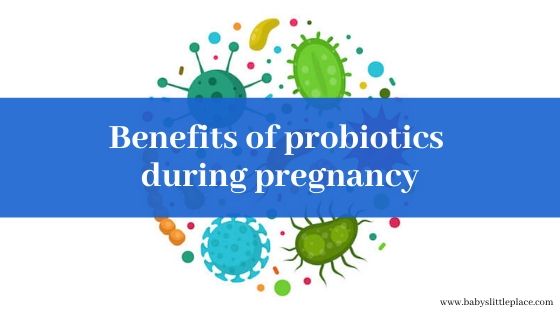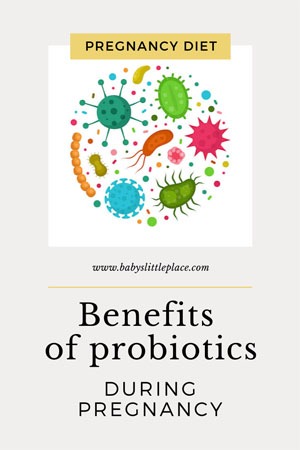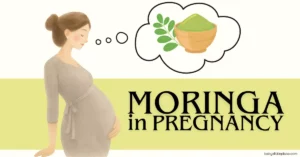
What are the benefits of probiotics during pregnancy?
Pregnant women have a lot of concerns about what is safe, and what not, during pregnancy, especially when it goes about their diet. And there is no difference with probiotics. We all know they are great for us, but can you take probiotics during pregnancy too? Of course, you can. Probiotics during pregnancy are generally safe, with lots of benefits on pregnant women and their unborn child.
Did you know that yogurt, sour milk, kefir, and other fermented dairy products contain health-friendly bacteria? These are so-called good bacteria. Good bacteria belong to the lactic acid bacteria group, so they are found in fermented dairy products. And these fermented dairy products with good bacteria are so-called probiotics.
Probiotics have many proven benefits on our bodies, especially during pregnancy, when you need to maintain a healthy immune system for you and your baby.
Probiotics work in our gastrointestinal tract, where they prevent the growth of unwanted bacteria. With that, they prevent changing the microbial metabolism in the gut and strengthening our immune system.
Why are probiotics important during pregnancy?
Because they maintain a healthy intestinal microflora of pregnant women!
Our gut is a home for many bacteria, good and bad. Those bacteria form our intestinal microflora. Any change in that good/bad bacteria balance may cause gastrointestinal disorders, which are more or less unpleasant, especially during pregnancy.
With maintaining the balance, probiotics consequently maintain a good immune system of the pregnant woman and her unborn child.
Probiotics prevent the growth of bad bacteria that are the cause of gastrointestinal diseases. At the same time, they maintain the healthy balance of the intestinal microflora. Healthy intestinal flora contributes to a better immune system, so having a strong and healthy gut is important for both mom and her baby.
What kills good bacteria in the gut?
Mostly our unhealthy style of living. If you are pregnant or not, and you find yourself in the following statements, then it is time to change your diet. Not just because you are destroying your healthy gut microflora, but because of lots of other benefits probiotics have on your physical and mental state.
Following habits destroy the healthy intestinal microflora of a pregnant woman:
- poor diet
- eating a little or no vegetables and fruits
- eating a lot of procced foods
- drinking lots of carbonated beverages
- drinking lots of coffee
- taking antibiotics
- leaving in high stress
- taking pregnancy supplements of a poor quality
RELATED: Healthy pregnancy diet for the first trimester
Benefits of probiotics during pregnancy
- Probiotics maintain healthy digestion and proper nutrient absorption. That’s why they reduce gas, bloating, heartburn, and constipation.
- Probiotics reduce the risk and severity of diarrhea from a number of different causes.
- Probiotics treat bacterial vaginosis and allergic reactions.
- Probiotics improve mental health conditions, so they can help reduce the risk of postpartum depression.
- Probiotics reduce the baby’s risk of allergies, eczema, asthma, and atopic dermatitis.
- Studies have shown that probiotic intake during pregnancy can reduce the baby’s colic as well.
- If the pregnant woman taking enough probiotics, the incidence of colds and other respiratory diseases is reduced.
- Probiotics reduce gut inflammation, which is believed to lower blood pressure and consequently reduce the risk of preeclampsia.
- Some studies have shown that taking probiotic supplements during the first trimester helps lose postpartum weight faster.

Frequently asked questions about probiotics during pregnancy
Is it safe to take probiotics during pregnancy?
Both natural probiotics and probiotic supplements are usually considered safe to take during pregnancy. However, caution, especially when taking supplements is advised. There are many probiotic supplements on the market, and some are not as good as others.
Talk to your GP or midwife before taking any of them. If you do take a prebiotic supplement, ensure you stick to the manufacturer’s guidelines.
Which probiotics are best for pregnancy?
Of course, the best probiotics are those from natural food sources.
Healthy probiotic foods:
- kefir
- probiotic milk drink
- traditional buttermilk
- yogurt
- aged cheeses, such as cheddar and gouda
There are good probiotic supplements on the market too but talk to your healthcare provider before taking them.
Is yogurt with live cultures safe for pregnancy?
Yogurt is probably the most popular, and well-known food choice for those searching to add probiotics in their diet.
Any yogurt with “live and active cultures” as part of the ingredients contains probiotics. So-called “live and active cultures” are actually probiotics so you are looking for such yogurt. Yogurt also contains calcium and it’s packed with proteins and folate.
Do probiotics help with pregnancy nausea?
Because probiotics during pregnancy maintain the balance between the “good” and the “bad” bacteria, they help to reduce morning sickness too.
But if you have severe morning sickness, only probiotics won’t help. Talk to your healthcare provider about additional measures to prevent pregnancy sickness.

The conclusion
Probiotics are safe during pregnancy but talk to your healthcare provider if you decide to take probiotic supplements!
With lots of proven benefits, probiotics can help with minor problems during pregnancy, and improve your immune system. That is, of course, great for your unborn baby as well!



